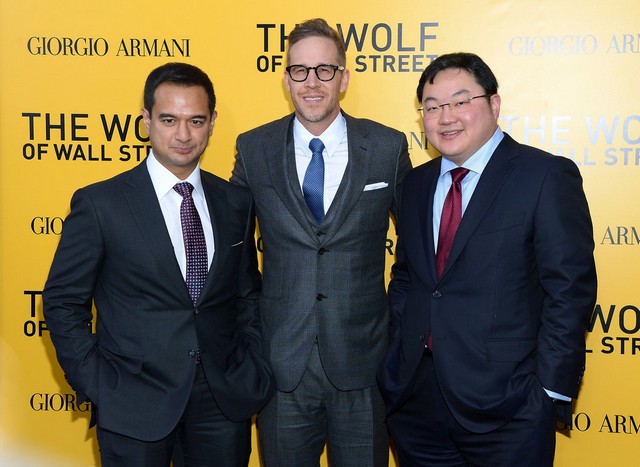Like many other Malaysians, I am deeply concerned about allegations in the media hurled at the Malaysian Prime Minister and his family which have cast serious aspersions on their integrity.
Some of these allegations have been circulating for a while but they have now re-surfaced in a more trenchant form. The New York Times has played a big role in this.
Why have they re-appeared at this time? The NYT article entitled “Jho Low, Well Connected in Malaysia, Has an Appetite for New York” by Louise Story and Stephanie Saul was dated February 8, 2015 — two days before the Federal Court announced its verdict in the Anwar Ibrahim case. Is this a coincidence? Or was it a mischievous attempt to pile pressure upon the powers-that-be in Kuala Lumpur so that the Court would be compelled to make a decision in favour of Anwar? The five member Federal Court panel, needless to say, guided by the principles of law and the canons of justice, upheld the earlier decision of the Court of Appeal and found Anwar guilty of sodomy.
It is valid to ask whether pressures were brought to bear upon the Judiciary in view of what transpired in 2012. It would be recalled that on January 8 2012, an editorial in the Washington Post warned bluntly that, “If the verdict fails that test (Malaysia’s commitment to democracy and the rule of law) there should be consequences for Mr. Najib’s relations with Washington.” This was a day before the Kuala Lumpur High Court was scheduled to pronounce its verdict in Anwar’s sodomy trial. On January 9, Anwar was acquitted by the High Court. It could of course have been a mere coincidence.
Nonetheless, it is a fact that sections of the American and British media, leading US and British based human rights NGOs, and even some British and US leaders had made vociferous demands in the months preceding the 2012 verdict for Anwar’s release. I had argued in a couple of newspaper articles at that time that this was part of their push for regime change in Malaysia. Even before 1998, when Anwar was sacked from the government and UMNO, there were already moves in some circles in the West to fast-track Anwar as a replacement for Prime Minister Mahathir Mohamad who they regarded as a ‘thorn in their flesh.’ In contrast, Anwar was then described as “the darling of the West.”
But why is there still a desire for regime change when the present Prime Minister, Dato Sri Najib, has gone out of his way to strengthen ties with Washington and London and even with their allies in West Asia? Part of the explanation lies in Najib’s unwavering support for the Palestinian cause, demonstrated through actual deeds, which has always incensed the Israeli regime and its Zionist and Christian Zionist backers in the US. Perhaps another equally important reason for Washington’s uneasiness with Kuala Lumpur is Najib’s warm relationship with Beijing which has gone beyond trade, investments, education and culture to embrace issues of security and military cooperation. This may be why regime change is still on the agenda of those who see themselves as the rulers of the world.
Those of us who are vehemently opposed to regime change instigated and orchestrated by outsiders are very much aware of how the vulnerabilities and shortcomings of the wielders of power in a particular country can be so easily exploited by both external and internal forces to bring down a leader. Allegations about the unexplained wealth of individuals linked to the Prime Minister, their opulent lifestyles, a controversial naval procurement and the questionable operations of a sovereign wealth fund, are bound to create distrust and to erode the confidence of the people in the ruling elite. It is quite conceivable that some of these allegations are utterly baseless but unless there is an honest endeavour to explain the whole situation, public perceptions will be formed quickly to the detriment of the Prime Minister and his family.
The coming parliamentary session starting March 9 affords an opportunity to the Prime Minister to provide a comprehensive response to the issues raised through various media outlets. At the same time, he should of his own volition invite the Malaysian Anti-Corruption Commission (MACC) to conduct a thorough investigation into the allegations made against him, his family and his friends. The MACC should leave no stone unturned. The Prime Minister should also seize the opportunity to expedite the introduction of long awaited reforms in the fight against corruption such as a law requiring all elected legislators to declare their assets and liabilities and those of their close family members to the public and another prohibiting relatives of federal and state officials exercising executive powers from bidding for government contracts and projects. Most of all, there should be a sincere attempt to jettison the lavishness and extravagance that has become synonymous with a section of the elite.
A tangible demonstration of such a change in attitudes and values is what the people expect at this time — not the targeting of individuals and groups who are trying to point out elite misdemeanours that may have a devastating impact upon the nation’s future.
Dr. Chandra Muzaffar is the President of the International Movement for a Just World (JUST).
Malaysia.
16 February 2015.

